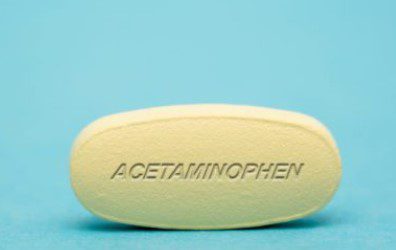After several months of rulings on the insufficiency of the expert testimony being offered to support plaintiffs’ claims that in utero exposure to the popular pain killer, Tylenol (generic acetaminophen), was linked to developmental disorders including ASD (autism spectrum disorder) and ADHD (attention-deficit/ hyperactivity disorder), on August 20, 2024, the presiding judge granted the defendants’ motion for summary judgment and dismissed all cases currently pending in the MDL.
The recent decision was the culmination of an extended process in which the plaintiffs sought to prove that the scientific evidence and methodologies being offered by experts to support their claims were credible, starting with the first Daubert hearing that was held on December 7, 2023. At that hearing, counsel for each side presented arguments supporting their respective positions; the five experts – an epidemiologist, a toxicologist, a teratologist, a pharmacologist and a psychiatrist – did not testify. In addition to other concerns, Judge Denise Cote of the U.S. District Court for the Southern District of New York also observed that a single transdiagnostic analysis was used to support the plaintiffs’ contention that prenatal exposure to Tylenol could lead to an increased risk of both ASD and ADHD, which are two separate and distinct neurodevelopmental disorders (NDDs).
In a 148-page opinion issued on December 19, Judge Cote ruled that there is no scientific consensus that acetaminophen causes either ASD or ADHD, citing the U.S Food and Drug Administration and other groups currently conducting research concluding:
“….there is no generally accepted scientific conclusion that in utero exposure to acetaminophen causes either ASD or ADHD” and “ the plaintiffs’ experts have not reliably opined so either.”
As a result, the judge barred the five expert witnesses and dismissed the cases in the MDL; the dismissals were expected to lead to an increase in cases filed in state courts around the country. She also requested that the parties submit a joint letter by January 12, 2024 outlining next steps in the litigation; she also noted, however, that her ruling had left the plaintiffs with no admissible evidence.
In an unexpected turn, in February, 2024, a separate group of plaintiffs that were not part of the group of cases already filed and dismissed in December petitioned Judge Cote to have their expert, Dr. Roberta Ness, heard on the issues of Tylenol use and subsequent diagnoses of ASD and ADHD. Judge Cote granted the request and agreed to consider the deposition testimony of Dr. Ness. The defendants filed a motion to exclude Dr. Ness’ testimony on June 11.
On July 10, the Judge issued an 84-page opinion granting the defendants’ motion for summary judgment and excluding Dr. Ness’ testimony on the basis that the plaintiffs failed to ensure that the scientific evidence they presented was not only relevant but reliable.
In response to her subsequent request to the plaintiffs that they explain why she should not enter final judgment in favor of the defendants, the plaintiffs responded with the argument that they could use statements by one of the defendant’s expert witness, Dr. Stephen Faraone to provide the missing admissible evidence. However, the Judge again ruled against the plaintiffs stating:
“No reasonable jury could find, from the smattering of Dr. Faraone’s past statements and isolated pieces of his deposition identified by plaintiffs that prenatal exposure to acetaminophen can cause ADHD in offspring. As such, Plaintiffs have failed to make a sufficient showing on an essential element of their case with respect to which they have the burden of proof. Summary judgement is therefore granted for the defendants.”
The August 20 order enters final judgment for the defendants in all pending cases and effectively ends this litigation in the federal court.
Resources
https://www.law360.com/articles/1872153/judge-rules-lack-of-expert-dooms-families-tylenol-mdl







